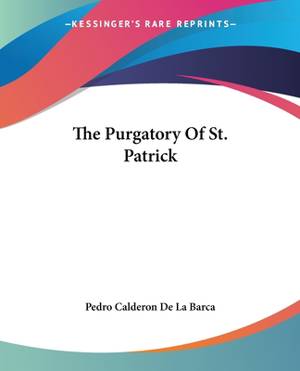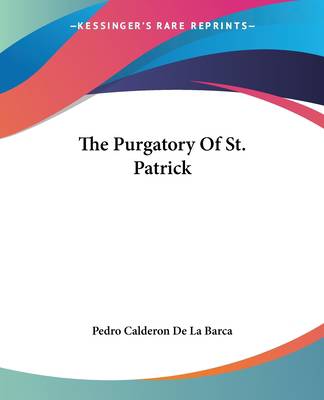
- Afhalen na 1 uur in een winkel met voorraad
- Gratis thuislevering in België vanaf € 30
- Ruim aanbod met 7 miljoen producten
- Afhalen na 1 uur in een winkel met voorraad
- Gratis thuislevering in België vanaf € 30
- Ruim aanbod met 7 miljoen producten
Zoeken
Omschrijving
The Purgatory of St. Patrick is a play written by Pedro Calderon De La Barca, a Spanish playwright, in the 17th century. The play is based on the Catholic belief of purgatory, which is the intermediate state after death where souls are purified before entering heaven. The play follows the story of St. Patrick, the patron saint of Ireland, who is sent to purgatory by God to help a group of souls who are stuck in a state of limbo. These souls are unable to enter heaven or hell because of their sins and must be purified before they can move on. St. Patrick is accompanied by an angel who guides him through purgatory and introduces him to the souls he must help. The play is structured in a series of vignettes, each one depicting the story of a different soul and their struggle to overcome their sins. Throughout the play, Calderon explores themes of redemption, forgiveness, and the power of faith. The Purgatory of St. Patrick is considered one of Calderon's most significant works and is a classic example of Baroque theatre.LEOGAIRE. That already has been given thee; For so sad was he, believing Thou wert dead, so deep his grieving, All the past will be forgiven thee Since thou livest. Come with me, Fortune will once more embrace thee, -- In his favour to replace thee Let my happy privilege be.This scarce antiquarian book is a facsimile reprint of the old original and may contain some imperfections such as library marks and notations. Because we believe this work is culturally important, we have made it available as part of our commitment for protecting, preserving, and promoting the world's literature in affordable, high quality, modern editions, that are true to their original work
Specificaties
Betrokkenen
- Auteur(s):
- Uitgeverij:
Inhoud
- Aantal bladzijden:
- 216
- Taal:
- Engels
Eigenschappen
- Productcode (EAN):
- 9781419179426
- Verschijningsdatum:
- 17/06/2004
- Uitvoering:
- Paperback
- Formaat:
- Trade paperback (VS)
- Afmetingen:
- 190 mm x 234 mm
- Gewicht:
- 381 g

Alleen bij Standaard Boekhandel
+ 50 punten op je klantenkaart van Standaard Boekhandel
Beoordelingen
We publiceren alleen reviews die voldoen aan de voorwaarden voor reviews. Bekijk onze voorwaarden voor reviews.








